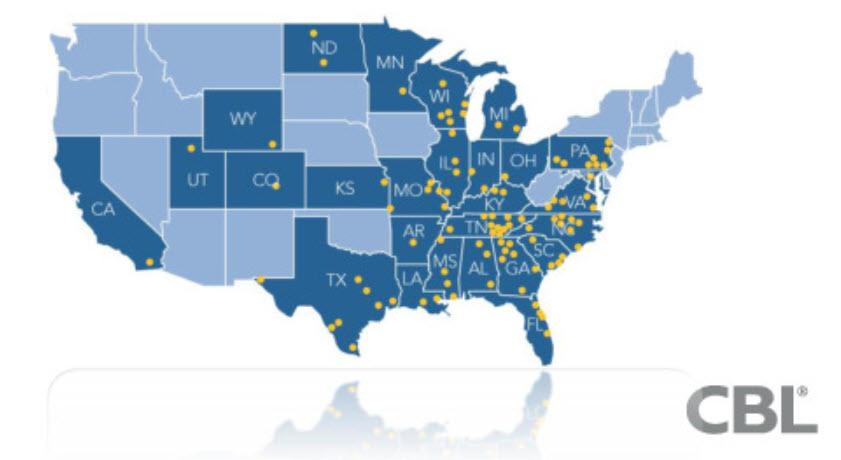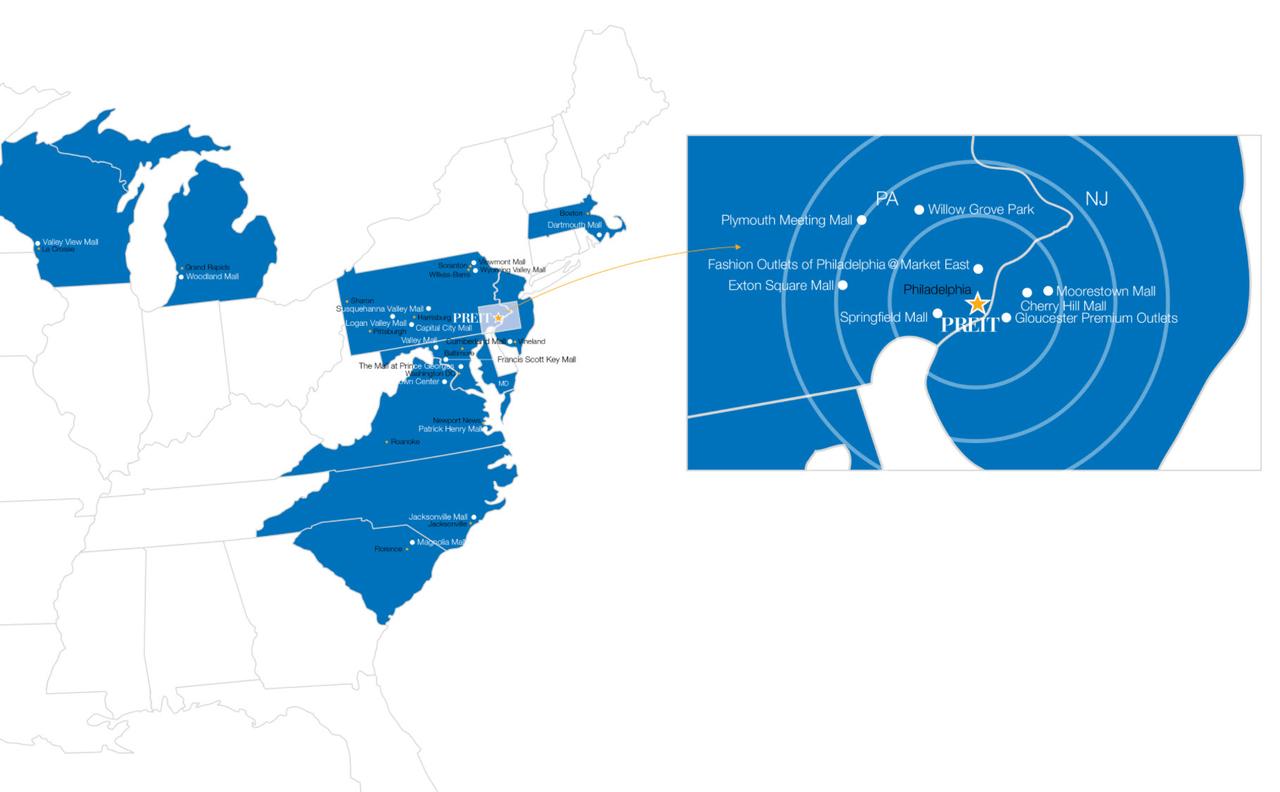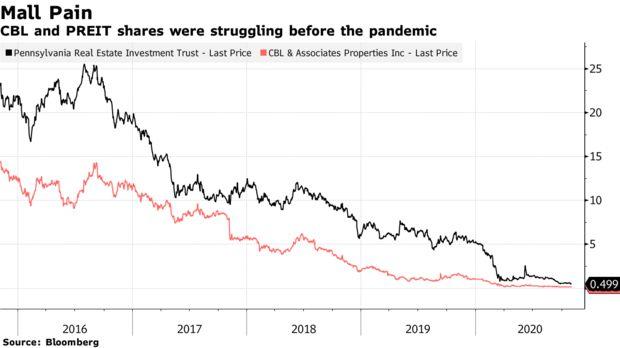Two Major Mall Landlords File Bankruptcy Amid Retail “Carnage”
Tyler Durden
Mon, 11/02/2020 – 13:10
While the Wall Street crowd has since moved on from shorting malls, aka the “Big Short 2.0”, in some distinct cases with massive profits, to shorting hotels which as we first presented here earlier this year has emerged as the “Big Short 3.0” trade, this weekend we got a vivid reminder of what Bloomberg dubbed “carnage” among mall tenants when two major mall landlords filed for bankruptcy this weekend, following their constantly growing list of bankrupt clients into Chapter 11 protection.
Two mall REITs, Pennsylvania Real Estate Investment Trust and CBL & Associates Properties filed for Chapter 11 protection on Sunday, citing pandemic-induced pressures on their tenants and, by implication, themselves. Together the two REITs account for 87 million square feet of real estate across the U.S., according to court filings.
CBL, based in Chattanooga, counts 107 properties in 26 states in its portfolio, including enclosed malls, outlets and open-air retail centers…
… while Philadelphia-based PREIT owns malls in Pennsylvania, New Jersey, Virginia, Maryland and Michigan, according to its website.
While the brick and mortar retail “apocalypse” was already a fixture of the US economy ahead of the covid pandemic thanks to the destructive effect of Amazon on legacy retailers, the pandemic worsened the already dire situation as a steady stream of chains imploded as their customers shifted to online shopping. J.C. Penney, J. Crew and Ann Taylor are among the dozens of chains that have sought court protection since Covid-19 lockdowns devastated in-store shopping this year.
In case you missed it, our 2020 Midyear Review is an in-depth analysis of #chapter11 filings and bankruptcy trends impacted by Covid-19. Access it here: https://t.co/7iLyzff2O2. @Reorg @ReorgAmericas pic.twitter.com/9zv6uBVg7J
— First Day by Reorg (@ReorgFirstDay) August 27, 2020
In the end, for mall landlords like PREIT and CBL, which own less productive malls than rivals such as Simon Property Group and Macerich according to Bloomberg Intelligence analyst Lindsay Dutch, this hurdle proved insurmountable, although judging by their stock price, their collapse was hardly a surprise.
“There’s too much retail real estate in the U.S.,” said Dutch, a REIT equity analyst. “Retailers continue to reduce their store footprints, and while brick and mortar is here to stay, the focus is on high-quality locations.”
According to the Bloomberg analyst, many of their properties are known in the industry parlance as B-class malls, which bring in fewer sales per square foot than their better-placed peers. They may be located outside major metropolitan areas or upscale regions, making them vulnerable as middle-class customers struggle to make ends meet, and they were hit hard by the pullback of anchor stores like J.C. Penney and Sears.
And while shareholders face total loss, the good news for employees is that some may keep their jobs: the mall owners obtained pre-petition support of creditors for restructuring plans prior to their bankruptcy filings, shortening their trips through bankruptcy. PREIT’s plan would, pending court approval, push out debt maturities and bring in $150 million of additional capital. CBL’s plan would slash debt by $1.5 billion and also extend certain maturities, according to Bloomberg.
via ZeroHedge News https://ift.tt/3mRpIpr Tyler Durden


